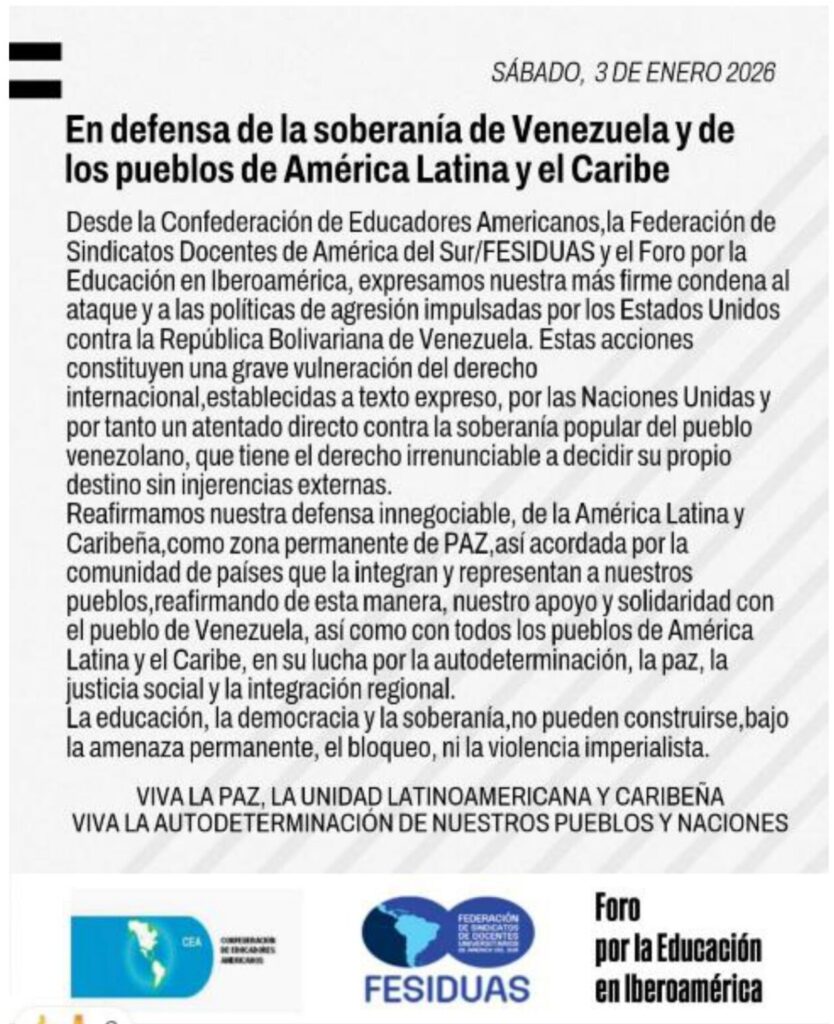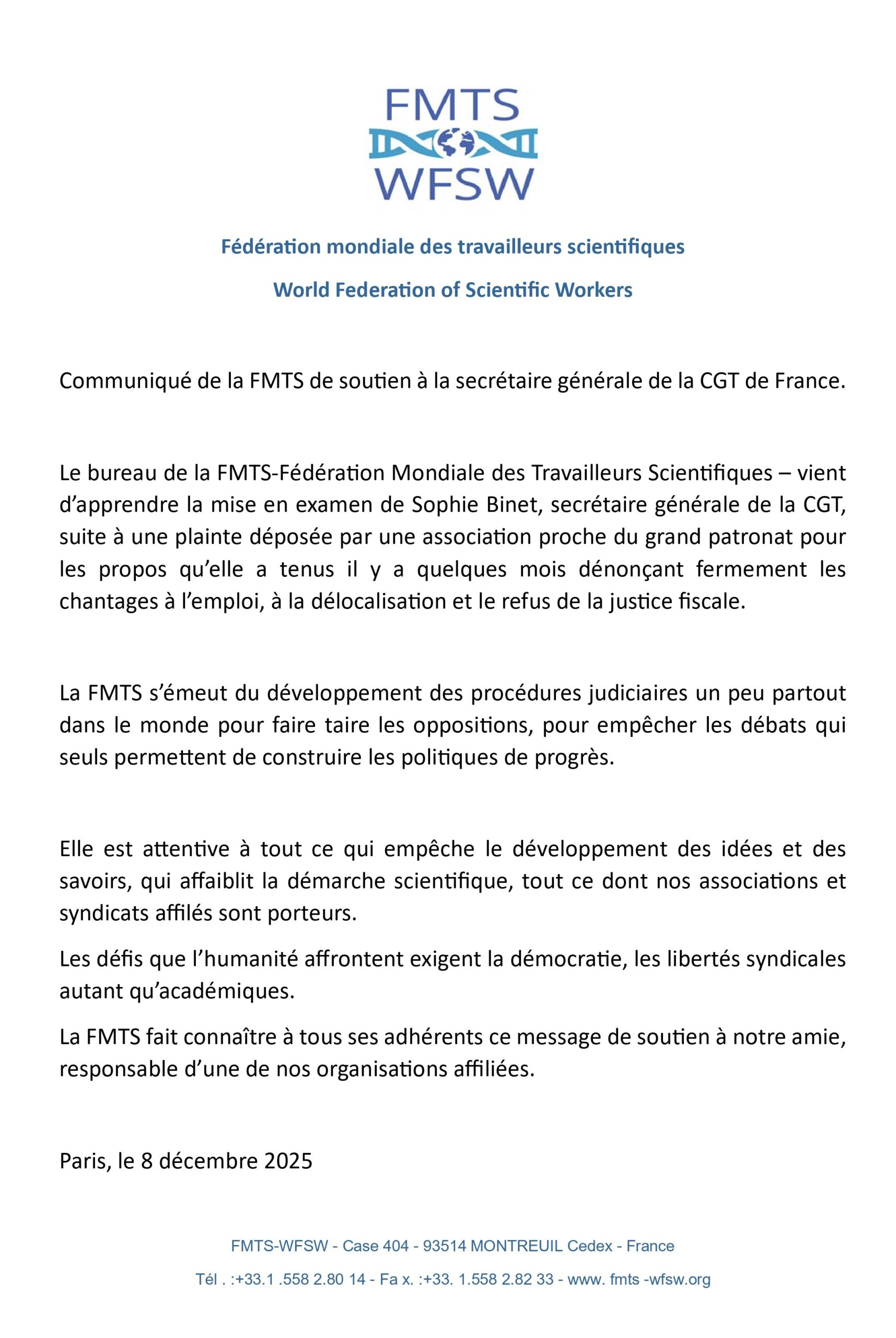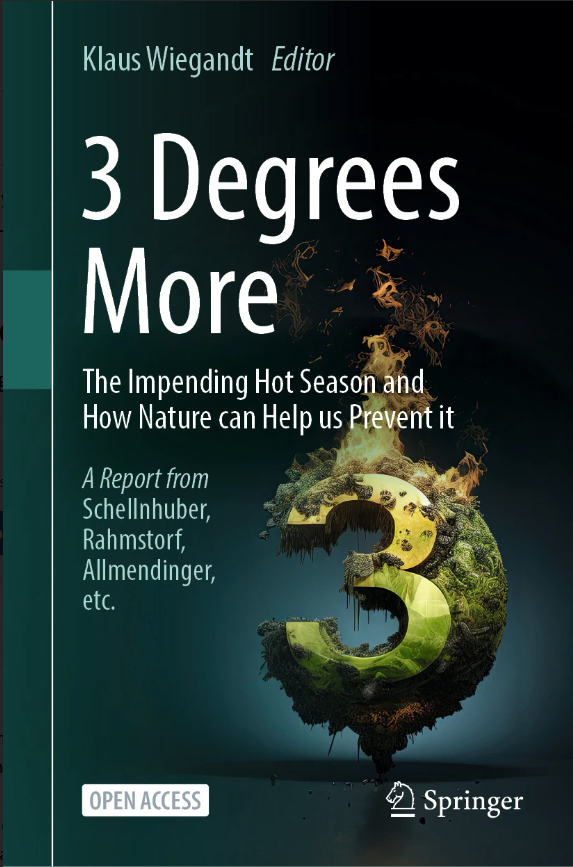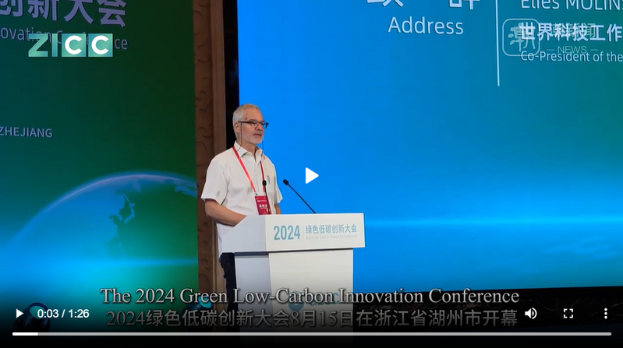Research, democracy and sustainable development
Claus Montonen, INES (International Network of Engineers and Scientists for global responsibility), Department of Physics, University of Helsinki.
Almost a year ago, INES and UNAM (Universidad Nacional Autónoma de México) organized a conference on science, peace and sustainability in Oaxtepec, México. In preparation for that conference we wrote a declaration, ”the Oaxtepec declaration” (you can find the text from the INES webpages, www.inesglobal.com , under activities, appeals&declarations). Let me quote certain parts:
”The solution to the complex web of problems and challenges we are facing requires enormous efforts by the world community. To leave the road toward global disaster, the world needs to enter a new path toward sustainable development that can be extended to the whole planet, a path that is compatible and in harmony with the social and natural environment.”
”Science and technolgy are playing an ambivalent role in this context. They are part of the problem and are a necessary part of the solution. They help to accelerate and globalize the complex nexus of world problems through innovations that multiply impacts ands risks on the environment and society. But they can also contribute to solving the problems through beter understanding and developing more sustainable technology.”
So far, I think most scientists would fully agree. The text, however, goes on to make statements about the relations between science and society, and the need for a new mode of science: ”A transition to a sustainable science requires breakthroughs within the science system and its place in society. Science and eduation are essential in this process as they can strengthen and channel the enormous innovative capacities of human beings and society toward problem solution. To achieve this, science needs to become more interdisciplinary, integrated and international; become more solution-oriented through peace and environmental research and education at the universities; and scientific institutions need to become more democratic.”
Such statements are, as my experience from discussing with colleagues shows, more controversial. Interference in the freedom to pursue the subject of research of one’s own choice is strongly resented, although the realities of research funding today make this freedom largely illusory. Fundamental research is still considered to be most prestigious, and certainly, it is most fun.
The new vice-president for scientific planning and review of the International Council for Science (ICSU), Kari Raivio, recently stated that a situation where only 10% of the funds for research are assigned to projects dealing with problems affecting 90% of the world’s population, is untenable. But at the same time, similar claims that the research efforts are misdirected are being raised by science administrators and industrialists who wish to see the emergence of a brave new university, project-oriented, demand-driven, competition-minded and governed like a business enterprise. In almost half of the 27 member states of the European Union the universities and research establishments have been reformed according to these ideas, or such a reform is planned or underway.
And thus, under attacks from two directions, it may well be that the days of curiosity-driven research and of the collegiate university enjoying academic freedom are largely over. This would certainly imply a deep change in the commonly perceived cultural values of science: to satisfy human curiosity, to enrich the human spirit and to change human perceptions and understanding.
ICSU can be taken to represent the world-wide scientific establishment and thus the mainsteam scientists. Thus it is interesting from the point of view of the themes of this symposium, to take a look at one of their recent publications, a brochure called ”Freedom, Responsibility and Universality of Science” (available from the ICSU website www.icsu.org ). The principle of universality of science embodies freedom of movement, assocation, expression and communication for scientists, as well as equitable acess to data, information and research materials. As ICSU remarks, these freedoms are highly valued by the scientific community and generally well accepted by governments and policy makers. Balancing these rights and freedoms are certain responsibilities. Individual scientists have a responsibility to conduct their work with honesty, integrity, openness and respect. There is a collective responsibility to maximize the benefit and to minimize the misuse of sciency for society as a whole.
ICSU further points out that the scientific community needs to more fully engage societal stakeholders in explaining developing and implementing research agendas. ”A central aspect of ensuring the freedoms of scientists and the longer term future of science is not only conducting science responsibly but being able to publicly demonstrate that science is being conducted responsibly.”
From what has been said we can identify a number of themes we could touch upon in the debate: How and by whom should the research agendas be decided upon; how should the responsibilities of science and scientists relative to society as a whole be determined; malpractices and misconduct in science; whistle-blowing or loyalty; the problems of military and weapons research; open access to results and data bases; the development of curricula and methods of teaching to heighten the awareness of relations between science and society. You certainly have more themes you wish to take up, and in the World Social Forum on Science and Democracy in Belem a few weeks back even more themes were on the agenda. Several participants in this symposium were in Belem, so you could report on the discussions and conclusions there.
The Oaxtepec declaration ends with a pledge to work locally, nationally and globally for the constructive usues of science and technology for a peaceful and sustainable future, free of nuclear and other weapons of mass destruction. In this spirit we should continue our efforts, and in this spirit I open this





